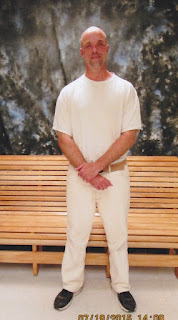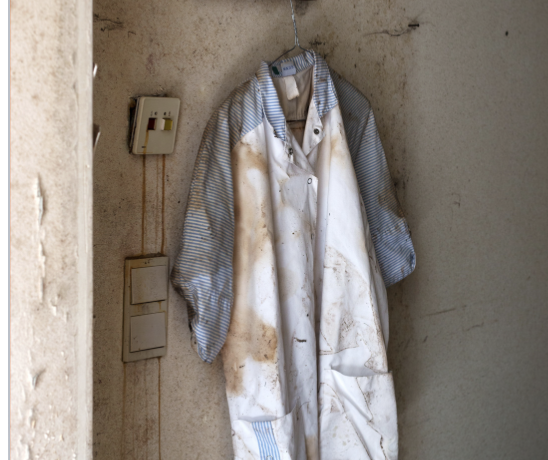by Thomas Bartlett Whitaker
When you want to know how things really work, study them when they’re coming apart.– William Gibson, Zero History
We have arrived at a curious point in the history of our species. It is a long and perilous road that has brought us to this state of affairs. Things could have gone very differently for us – indeed, if one could somehow negate ΔS ≥ 0 and send time spinning backwards about twenty million years and then let things play out anew, we would almost certainly not be here. Some form of hominin might have developed the right morphology of hand to hold tools; maybe something like Homo with our large brains would have eventually entered upon the stage of life, but I tend to doubt it. Our evolution and survival were far too contingent upon the cruel vicissitudes of the natural world to replicate something like us. Mitochondrial DNA tells the tale of just how close we came to extinction at multiple junctures in the not-so-distant past. Somehow we survived long enough to spread out of Africa in successive waves, reaching as far as Patagonia on foot and the farthest reaches of Oceania by boat. What an immense, wonderful, and terrifying planet this must have seemed to our ancestors.
We developed language, then writing, usually on clay tablets covered with pictographs. We smelted copper, then bronze. We invented beer and wine. We invented gods. (The discovery of these last three might have owed something to each other.) Somehow, despite all of the creatures that happened to think humans were an acceptable addition to the lunch menu; despite myriad diseases that ravaged the rich and poor, the righteous and the wicked; despite our propensity for tribalism and cruelty and violence: despite all of this, we survived. We’re still here.
Throughout all of the hundreds of thousands of years that Homo sapiens have existed on this planet, a single overriding commandment ran into and through all of his ventures. It is such an obvious point that, until very recently, it hardly needed to be spoken. The principle was this: this world is trying to kill you. No matter what the priests of a thousand dead or dying faiths claimed, this was no garden designed for our pleasure. (“Trust in heaven,” they advised, “but keep your powder dry.” If heaven were trustworthy or dependable, why would you need the powder in the first place?) It is always, always trying to annihilate you. We’ve tamed the old garden a bit, I know, but go take a stroll through the Amazon and see how far you get, if you don’t believe me.
Survival required that our forebears use these big brains in order to perceive the world in a clearer way than did our predators. This clarity pointed the way towards better tools. This vision proved the value of using soap, long before anyone had even begun to imagine the existence of bacteria. It showed Anaximander twenty-six centuries ago that, despite all appearances, the Earth floated in space, supported by nothing. Not long after, Parmenides (or maybe Pythagoras; pick your camp and sharpen your slide rules) used mathematics to deduce the sphere as the most reasonable shape for the planet. From these relatively simple equations we eventually built bridges, aqueducts, towers, Disney World.
Avogadro saw clearly: everything we know about molecular weight is due to his insights. Maxwell saw clearly: the computer you are using to read these words owes everything to his laws for electromagnetic phenomena. Einstein saw clearly: from him we now know that time – that most “obvious” of known, static variables – is in fact relative: time passes faster at the top of a mountain than it does at sea level – a weird fact, but a fact nonetheless, empirically verified. Boltzmann saw clearly: he figured out that this whole “time” thing had everything to do with heat, another fact, but one so misappreciated by his peers that he hung himself.
Our society – our entire modern world – is built upon such clear vision. It is not built on faith. It is not built on human character, or love, or solidarity. All of that is superstructure; the foundation is constructed out of knowledge, the idea that facts exist, that there are right and wrong answers to questions and that buying into wrong beliefs has consequences. (I know this as well as anyone.) Against the power of the claw, the storm, the germ, mankind erected many barriers, but the only one that actually mattered was the rampart of knowledge. This was very clear to virtually every human being that ever lived. Historical man understood that reality doesn’t care if you acknowledge it. Your existence creates no sense of obligation to the universe. Survival is not mandatory. Until very recently, people who drifted too deeply into the wilderness of illusion found this out the hard way, by becoming reality’s chew toy.
For the entirety of the millennia that superstition tried to co-opt the results of the pursuit of knowledge for its own ends, life was ugly. We had some brief moments of clarity in the Classical era, before Christian scholasticism managed to smother out this spark for a thousand years. Starting with the Renaissance and with increasing velocity after the Enlightenment, mankind has managed to stockpile this collection of useful facts. Moving this information from the academic elite to the general populace has been a slow process; problems once thought to be on the verge of being solved proved on countless occasions to be far more complex, engendering skepticism in the unlearned. Despite this, the average fifth grader knows more facts about the world than virtually any historical figure you care to name: more than Moses, more than Mohammed, more than Caesar. In the face of those who pretend that there are “other ways of knowing,” science has plodded forward, dragging the light into darkness, lengthening lives, curing diseases, and giving more and more people opportunities for a meaningful existence.
Despite this progress – and because of it – there have been reactions. Just a few generations ago we fiddled with the controls that blurred the lines between fact and fiction in an alarming way. In her 1951 book, The Origins of Totalitarianism, Hannah Arendt wrote: “The ideal subject of totalitarian rule is not the convinced Nazi or the convinced Communist, but people for whom the distinction between fact and fiction (i.e., the reality of experience) and the distinction between true and false (i.e., the standards of thought) no longer exist.” Further, in her 1971 essay, “Lying in Politics”, Arendt wrote: “The historian knows how vulnerable is the whole texture of facts in which we spend our daily life; it is always in danger of being perforated by single lies or torn to shreds by the organized lying of groups, nations, or classes, or denied and distorted, often carefully covered up by reams of falsehoods or simply allowed to fall into oblivion. Facts need testimony to be remembered and trustworthy witnesses to be established in order to find a secure dwelling place in the domain of human affairs.” A lot of really good dystopian fiction was written in the years following the rise of the Nazis, for good reason. Thinking people understood that our species had been taught a lesson, a dear one, something that needed to be remembered for all time.
I don’t think it’s a coincidence that we seem to have forgotten that lesson just exactly at the point when most of those who had lived through World War II are finally passing away. We’re again finding ourselves washed up on a beach in a strange country where facts are no longer factual. This time, however, the largest culprit is found on our own shores: a president that lies with such velocity that he gets away with his mendacity in part because most media organizations cannot afford to employ enough fact checkers to keep pace with him, a virtual fire-hose torrent of falsehoods, In one article, the Washington Post calculated he’d made 2,140 false or misleading claims during his first year in office, a rate of 5.9 per day. However, he’s trained his followers to disregard such analyses because they come from the media. To any such people, I humbly ask you to remember that one of the largest fouls you can make in a debate is to attack your opponent’s character rather than his claim. Ad hominem responses are only used by people who are either ignorant or dishonest, period, full stop. They’re what you resort to when you literally have nothing with which to argue in a logical argument. Something worth remembering, perhaps, when you watch your leader respond to criticism. These lies are not small ones. There is no sense in which you can reasonably claim that “but the other side also lies” that isn’t drifting deeply into the realms of false equivalency. Obama never alluded to a terrorist event in Sweden that never happened in a crass attempt to instill fear in his supporters. Right-wing media have created more than an alternate reality information bubble. This is a silo, a bunker, where empirical facts matter only insofar as they occasionally confirm what is already believed by its inhabitants. When presidential advisor Kellyanne Conway tried to defend Trump’s travel ban by referring to a non-existent “Bowling Green Massacre”, nobody on the Right even blinked, and Fox and Friends even attempted to twist local crime rates into a narrative that would create such a massacre.
Since the party backing Trump is so fond of reminding us of our heritage, it’s worth asking whether our Founders gave any thought to the rise of a populist figure who had a loose relationship with the truth. In his 27 January 1838 Lyceum Address, Abraham Lincoln – a Republican who would be horrified to learn both what the GOP has become, as well as the frequency with which current Republicans claim to be the “Party of Lincoln” – spoke about the dangers presented to liberty as memories of the Revolution faded away. He worried about a disregard for the government’s institutions (think: Trump’s bashing of our own intelligence agencies, his disregard for the justice Department; think: the gutting of the EPA under Scott Pruitt; think: the Right’s constant attacks on the IRS since the Bronze Age) and the rise of a would-be tyrant who might “spring up amongst us.” To combat this figure, sober reason, “cold, calculating, unimpassioned reason” would be necessary. Reason alone was the bulwark against tyranny. Alexander Hamilton – he of the weird surge in popularity in recent years – also knew the need for an embrace of Enlightenment values. The entire system of checks and balances at the heart of our government was to prevent the rise of “a man unprincipled in private life” (Ding!) and “bold in his temper” (Ding! Ding!) who might “mount the hobby horse of popularity” and “flatter and fall in with the nonsense of the zealots of the day” (Ding-a-fricking-ling!) in order to bring down government institutions and “throw things into confusion that he may ride the storm and direct the whirlwind.” Hamilton wrote those words in 1792. He too saw clearly.
When Rudy Giuliani looked right into the camera recently and opined that “truth is not truth”, he was taking a page right from the “Authoritarian Despot’s Handbook”. I’ve been wary of drifting into the whole “Trump = Hitler/Mussolini/whoever” trope for various reasons. Still, there are plenty of links between the way this president speaks, acts, and manipulates his followers that are reminiscent of fascists from the recent past. Umberto Eco noted some of these features in his 1995 essay, “Ur-Fascism”: an appeal to nationalism; a manipulation of differences between segments of society in an attempt to create fear; a rejection of science and rational discourse; an invocation of tradition and the past; and, a tendency to equate disagreement with sedition or even treason. More to the point, Eco noted that such leaders tend to have very few genuine beliefs or philosophies. Instead, they possess a rhetoric that is a “collage of different philosophical and political ideas, a beehive of contradictions,” employing “an impoverished vocabulary and an elementary syntax, in order to limit the instruments for complex and critical reasoning.” Such leaders, Eco observed, regard “the People” as a sort of “monolithic entity expressing the Common Will,” which that leader interprets and embodies. I distinctly recall feeling a chill when, at the Republican National Convention, Trump boldly stated: “I’m with you – the American people. I am your voice.” One can’t help but to suspect that, in the official transcript, the “v” is capitalized.
Such figures have to attack knowledge and knowledge-gathering institutions, because without a field of common facts and the consensual reality that is constructed from these facts there is no way to show that their attempts at reality distortion are false. How do you prove a liar is lying if the very idea of what constitutes “proof” is relativized? Contextualize this with experiences from your own life: say you go to buy a used car and the salesman tells you that the vehicle you are looking at has 4,000 horsepower. How do you know that cars do not have 4,000 horsepower? Either you are an engineer that has an intimate understanding of how internal combustion engines work (direct, empirical knowledge), or you have spoken with such people whose opinions have proven to be correct on these matters. If such experts are all suspect, how could you ever prove the salesman to be lying? This is precisely what Trump has been frighteningly successful at, this delegitimizing of the knowledgeable: in the world of the Right, people who boldly state that facts exist and that they are in possession of some of them are labeled as “elitists.” Trump is not the root of this problem, however. He merely hijacked a series of trends that have been at work in the interconnected cultures of the West for decades: I’ve been railing against postmodernism for a few years now, so I won’t hop on that particular soapbox again, suffice to say that I think this is one culprit we can solve relatively easily. The rest are going to be more complicated.
As the ability for science to correctly explain and make accurate predictions about the world has expanded into traditional disciplines, it has increasingly challenged views considered by many to be sacred. It is simply a fact that this encroachment has impacted the Right far more than it has the Left. Many pundits on the Right have understood this for decades, but things really began to spin out of control in the 1990s. Rush Limbaugh, for instance, has been screaming about the “Four Corners of Deceit” for several decades. The four? Government, academia, science, and the media. Scientists, according to him, are “…frauds. They’re bought and paid for by the Left.” People, being what they are, have in many cases chosen to side with prior beliefs over direct contradictory evidence, to the point where many on the Right no longer even believe in a college education. In a 2017 Pew Survey, 72% of Democrats and Democratic-leaning independents agreed that universities have a positive impact on the nation; 58% of Republicans, on the other hand, had a negative view of institutions of higher learning. Truth, facts, and knowledge are showing that the way these people have viewed the world and the cosmos is demonstrably false. So, rather than engaging in the difficult work of adjusting their individual pieces to fit into the complex puzzle that is the universe, they are taking aim at the people producing the facts themselves. Trump is merely taking advantage of this creeping sense of traditions being dismantled, using this as fuel to power a new reality that is more congenial to his aims and his massive need for praise. In this, however, there really are direct parallels between our current regime and totalitarian leaders of the 20th Century. The Nazis disdained academics in ways that are eerily similar to Trump cabinet officials; their need to create “alternative truths” is similar in its contours to what Stalin managed to pull off at times in the USSR. It’s worth remembering that in Orwell’s Nineteen Eighty-Four, there is no word for science; only Big Brother had the luxury of determining what “truth” was.
Obviously, none of this is good. All thinking people in the West are nervous, and you have every right to be. I understand your frustration. I live within a totalitarian society here in prison, so I understand what is at stake to a degree that may surpass most of you reading this. (To be technical about it, the TDJC is a theocratic totalitarian state, so I’m finding all of the recent interest in Atwood’s The Handmaid’s Tale to be very heartening.) I understand how all of the things that are wrong with our culture at the moment seem too big for a single person to deal with. You didn’t want us invading Iraq; we did it anyways. You didn’t want a vain, ignorant, deceitful buffoon to be elected to the highest office in the land; we did it anyways. I get it. And yet, I think we need to pause for a moment and realize a point so obvious it is often overlooked: for the world to have arrived at this very weird configuration, each and every one of us had to have behaved in exactly the manner required. The sum total of our collective action is now.
I’d like to offer an alternative to despair. I’m still working this out. It’s not a complete system or anything. It’s probably not even new, though it’s new to me. I know it sounds a little crazy, but bear with me. I’d like for you to think about what it would be like for you to take responsibility for everything. Try to step outside of this narrow frame that constitutes your traditional perspective and envision all of the spirals of responsibility that your person travels along, day in, day out. You don’t own a coal-fired power plant, okay – but you did buy that SUV knowing full well that you were going to be pumping emissions into a warming world. Rather than acknowledging this in a merely half-conscious way, truly notice your complicity in the problem, and then notice it every time you turn on a light or order a product from overseas that you could have bought from a store down the street at a slightly higher price. Try to notice it when you pay your electricity bill and realize that you’ve never once wondered what type of fuel your energy provider was burning so that you could binge-watch your favorite shows. Maybe you didn’t want our nation spending trillions of dollars and wasting thousands of lives on a pointless war in Iraq – but you really didn’t do anything much to stop it. You didn’t hold businesses supporting media organizations that were pounding the war drums repeatedly for months leading up to the invasion accountable. I’d even bet it’s a war which you haven’t given much thought about in a while, nor the lies our government told us to justify it in the first place. I also doubt you’ve ever sat down and counted how many of these lying scumbag politicians are still in government. I’d even wage some of you have voted for them since. Maybe you didn’t vote for Trump – but what did you really do to stop him, or the ideology that allowed a character like him to win in the first place? I’m not talking about you having posted something on your Facebook or Twitter account– screw social media and your email chains. I’m talking about concrete action. What are you doing now to fix the things you dislike about the world?
What I am talking about here is, obviously, an effort to consciously place our lives into a complex web of interdependence. We are taught to ignore this in America. More so than in any other advanced democracy, we labor under the weight of an autonomy myth that whispers into our ears the lie that we are only responsible for ourselves, we are independent: that the bell doesn’t really toll for us, and more, we shouldn’t even pay attention to that racket anymore.
My neighbor to the right is (by any definition that matters) insane. He believes he is the only “real” prisoner here. The rest of us are apparently actors. Many times over the past several weeks, he has experienced some kind of psychological crisis. These always seem to begin with an increase in the volume of the monologue I hear him maintaining all day, rising to the point where he is nearly shouting. He will eventually end up banging something on the wall, shrieking at the top of his lungs as if he were being mauled by an animal, until he collapses into a state where he won’t even accept his trays. It would be easy to claim that this is not my problem. I didn’t even know his name until recently. Except: on some level, the person that I was in my past, free-world life must have been aware that over the past five decades State-funded mental health facilities have slowly disappeared, the victims of choices made by the public to lower taxes. I say I “must” have known this because I read Ken Kesey’s One Flew Over the Cuckoo’s Nest in high school and I was certainly aware that such asylums didn’t seem to exist much anymore. I was not conscious of the reality that we had simply shunted poor men like my neighbor into the prison system, to the extent that the largest (and often only) mental health facility in every city in America is the local jail. By acknowledging this, I admit my complicity in the general state of affairs: I could have bothered to have looked into why there were no asylums in my town. I could have then investigated the court system which allowed such people to be sent to prison for “treatment;” no doubt such an investigation would have led me to some of the positions I hold now on these matters. Quite possibly, this knowledge might have pointed my entire life in a distinct direction from the one I eventually took. Ignorance is not a defense. Whether I choose to expend the effort to understand these spirals of responsibility or not, I am making a choice. In his weirdly unknown Truth and Existence, Jean-Paul Sartre argued that to be ignorant is to choose to ignore; it is to look away from what is to be known. In real ways, the plight of my neighbor and my ignorance are connected. I am culpable; I am in real ways partially responsible for his status.
By taking ownership of my neighbor’s problems, and the way the nurses completely ignore him, I am moving from the position of private person to that of public person. In addition to actually solving the problem of my neighbor’s lack of treatment, this choice has proven to be empowering for me. It is an act of resistance against forces that feel at first to be largely beyond my control. Perhaps most importantly, such decisions help me to act morally in a place where such stances are sometimes difficult to locate.
You see my point: the cure for what ails us in the era of Trump is massive involvement in the world around us. I like Francis Jeanson’s term citoyennisation: militantly becoming citizens. The weird thing is, I think most of us actually know this, or at least have suspected it. For those of you that have spent the last few minutes thinking to yourselves that all of this seems kind of obvious, well: when was the last time you actually got involved in the fixing of a large-scale problem with other people that didn’t benefit you directly? Some of you will have instant answers; most of you won’t. Own that. See it for what it is. If you acknowledge the merit of my argument, yet also find yourself in this latter group, I think it’s worthwhile asking yourself: what exactly has kept you from belonging to a movement, a volunteer organization, a drive? Don’t settle on the mundane components of a busy schedule. That’s not what I’m talking about. These can be moved around or reprioritized to make space, and you know it. Dig deeper. What beliefs do you hold that have prevented you from becoming a truly committed citizen? Solve that riddle, and you will save the world, even while placing such a weight upon your shoulders.
Such is the state of affairs in the world (and in my life) that I sat down a few hours ago to write about the ways we need you, dear Reader, to step up your involvement in our website and I ended up throwing the entire planet onto your back. (This is what happens when prisoners rehabilitate themselves and then end up rotting in cells for decades: there’s no place to do the good we know we are capable of.) It’s all connected, though: we need you to stop taking this project for granted in the same way that the world needs for all of us to stop taking modernity for granted. It took the efforts of billions of humans to make the world as comfortable as it is for all of us, and we’re just pissing it all away on behavior that is not adaptive for survival. Without active involvement – without you claiming a bit of the responsibility for the continued existence of this site – it cannot last forever, and neither can our culture. We’ve spent several thousand dollars over the past twelve months producing the entries you read here weekly, above and beyond the few paltry donations we received – and nearly all these costs have been absorbed by a single volunteer. We attempted to obtain several grants during the year, but thus far our efforts have not been successful. Sadly, a project like ours is always going to be a risky choice for the moneyed class. The state of our finances has grown so grim that we are seriously considering erecting a paywall around some content. I’ve never particularly wanted to do anything like that, but without subscribers, ads, or more donors, there’s not much left. To those few of you who have opened up your wallets for us this year: thank you. There are men behind the bars right now who are further along the rehabilitation curve than they would have been otherwise because of your assistance. I’ve heard from several people since my commutation who stated they were now proponents of criminal justice reform because of the information they found on this site, and that’s partially on you. One of these women is now volunteering in a New Mexico prison as a result. That’s on her, but it’s also on you, too. There are cycles and spirals of dependence and responsibility all around us, if you look hard enough.
On the positive side of the ledger, we have managed to recruit and/or kidnap a number of volunteers recently. So, for the first time ever, it would appear that we are nearly fully “staffed”. However, we’re always looking for interesting and capable helpers. If you value our little journal and think you have a skillset that would improve on things, please contact Dina at dina@mintuesbeforesix.com. To all of the new staff members: welcome aboard. We’re glad to have you around. The HMS MB6 leaks like a sieve, has more holes in its sails than our President’s logic, and our cannons are really just coffee tins glued together end-to-end and painted black. You’ll probably end up in the galley manning the oars more than is healthy. But – but: every once in a while, when the sun is just right and the wind is blowing and the sea is so blue it feels like all the sadness of mankind has been sucked down into it, I think you will see why we do this. Thank you also to the volunteers on our Board. You are easily the worst paid members of a corporate Board in the history of galactic commerce, yet you consistently plot wise courses for our little ship through the shoals of the taxman. If you keep up the good work, I think we might be able to increase your collective salary this year from one Ramen noodle pack to two. Don’t spend all that in one place.
Also, as you are no doubt aware, the team here at MB6 battled our way through the 501(c)3 process this past year. This means that your donations now get you a tax break! If you’d rather not support our current government, you can always register your objection by depriving them of funds by donating to us instead. Donations can be made via
![]()
or by sending stamps, check or money order to:
Minutes Before Six
2784 Homestead Road #301
Santa Clara, CA 95051
U.S.A.
MB6’s largest expense – week in, week out – is postage. Our essays go back and forth between authors, site HQ, and the incarcerated editors – often several times – before a final draft is settled upon. If you’d like to make a contribution but don’t have much to spend, consider hopping over to <the United States Postal Service> and sending some much-needed stamps to the above address. Like, you know, about six million would be great. (Less is fine, too.) Please also keep in mind that, while I (fortunately) only have to write one of these essays per year, our needs are constant. We appreciate a holiday gift, but we would also appreciate it if you recalled us in June and sent some more stamps.
Also, have you heard about Amazon’s Smile program? If you use <smile.amazon.com> and insert our non-profit tag, we will receive 0.5% of all of your purchase totals. Understand that this does not mean that you are paying 0.5% more for all of your stuff. No, this comes out of Bezos’s cut. I’m pretty sure he’s not going to go hungry as a result. Now, 0.5% isn’t much, but if we could get a few hundred of you to sign up – to take ownership for the responsibility of paying for all of this free content you’ve been gorging yourselves on for all these years – we might actually have a budget around here. This only takes a few seconds to set up, and a slight change in URL every time you shop. I don’t think that’s too much to ask.
I’d really like for our material to get shared more than it is currently, too. So, the next time an article touches you, link it somewhere. “Like” an entry sometime. Try leaving a comment once in a while. It’s not hard. I’m on page 17 of this rough draft; surely you can spare a few seconds to leave 17 words. We writers aren’t paid for this. Your feedback is pretty much the only reward we are going to get. When nothing comes in, not even constructive criticism, it’s pretty deflating – and it’s hard for us to keep rallying the troops to produce essays when your collective response doesn’t even amount to a yawn.
So, step up, people. We need your time, your input, your energy, and your extra dollars. MB6 is going to turn twelve this coming summer. It’s getting to the point where it’s too big for me to take my belt off and whoop it like I used to when it misbehaved. I’m dreading its teenage years, where all of the incoming entries will stumble in past curfew smelling of pot and Keystone Light. It takes a village to raise a literary journal. It takes a village to do anything. Our ancestors knew that, too. Let’s try to remember why.
Human life begins on the far side of despair.– Jean-Paul Sartre, The Flies
An Afterword….
Thomas is a tough act to follow but if I may be so bold as to try, I’d like to add few words of my own to his message.
Minutes Before Six – and by extension, I – have been gifted in ways this year that bear mentioning:
We forged our way through the non-profit process thanks to a sharp and altruistic group of attorneys who donated their time to guide us. Thanks to their efforts, Minutes Before Six is now officially a non-profit project and your donations are tax deductible.
An astute Board of Directors advises MB6 and the positive things currently being generated by our project are due to their influence. I can’t thank these wise ones enough for their time and focus!
MB6 has always operated on volunteer power – we count on this. A few of our key volunteers stepped back this summer for personal reasons, and I put out a call for new help. The response far exceeded my expectations both in numbers and quality. Our volunteers, new and old, are compassionate, intelligent, and interesting and I feel like the luckiest person on the planet to get to work with them. Thank you guys so much for stepping up to help – MB6 wouldn’t exist without you!
On this note, a special thanks to Steve and Teri – both absolute pillars of this project, who devote countless hours editing, researching, advising and organizing all aspects of MB6. Every good, powerful and interesting experience you have when you visit MB6 is a result of their creativity and dedication. Inspiring is what they are to me as both friends and partners. Love you guys xx
Prison Legal News donated space and a graphic designer friend created an ad for MB6 to search out new writers and artists. We have them to thank for the talented contributors MB6 will be bringing you in the year ahead. And a special shout out to Bell for helping us make this connection, and for her ongoing encouragement.
If you made a donation to MB6 this year, you have our gratitude. Your generosity fuels us not only financially but the support you demonstrate through your act of giving is food for the soul of our project. One donor even jumped through hoops to have MB6 added to his company’s approved non-profit giving program. Such actions touch me deeply and push me to work harder to continue to be worthy of such funding.
To V&J, and to D, thank you for sharing your homes with me when I visited Texas. The world would be a better place if it had more people like you in it, and I hope your kindness comes back to you tenfold. Love to you!
Perhaps the biggest gift of all was Thomas Whitaker’s clemency. Maybe someday I will write in depth about what those awful months were like, believing he was going to be executed and walking through that time leading up to February 22, 2018 with him. For now, despair, sorrow and fear serve as a summary of the hurricane of emotions that those of us who know and love Thomas struggled with. Many of you wrote support letters for Thomas and reached out to me privately to share ideas and offer kind words and comfort and it mattered enormously. You played a role in a miracle! So much of my work for MB6 is conducted in an isolated way. While I know an audience is visiting MB6 because a counter on blogger records your visits, I mostly don’t know who you are or what motivates you to come here. But I caught a glimpse of you in the joyful glow of Thomas’s clemency, and I felt your warmth as you celebrated with us. And it meant the world to have you there. It makes all the work I put into MB6 feel worthwhile. Thank you for allowing us to matter and translating our efforts into something meaningful.
And Thomas, it’s been an incredible ten years and I look forward to whatever the next decade holds. And being able to say that to you is the best gift of all.
The Minute Before Six team wishes you and your loved ones joy this holiday season and peace in the New Year. Thanks and love to you all – Dina
 |
| Thomas |
 |
| Lori |
 |
| Yolanda |
 |
| Tina |
 |
| Leigha |
 |
| Tracey |
 |
| Dorothy |
 |
| Linda |
 |
| Susan |
 |
| Cynthia |
 |
| Lorna |
 |
| Carmen |
 |
| Teri |
 |
| Steve |
 |
| Dina |
Not pictured but very much appreciated: David, Patricia, Amy




3 Comments
Richard
November 30, 2018 at 1:34 amThis was an extremely interesting and highly intellectual article that boiled down the truth for mass consumption. If circumstances were different, I'd expect to see the author on the Sunday political talk shows discussing a new book, or running for office.
CS McClellan/Catana
November 25, 2018 at 6:13 pmArethusa, I'm so glad to hear that Kenneth Hartman is now a free man. His book, Mother California, had a huge impact on me. Sometimes the impossible becomes possible, against all odds. And maybe foolishly, given the conditions of Thomas's commutation, I hope that a future Texas governor and parole board will find a way to free him. But in or out of prison, I'm sure Thomas will be one of those people who makes a big difference, even beyond the founding of MB6.
Arethusa
November 23, 2018 at 10:51 pmWell, here is the most layered and nuanced (two of my favorite descriptive words) funding request that I have seen. My organization, Books to Prisoners, has success in our annual funding request by including most of a a letter from one of the people we serve; this makes the people who write to us for books real persons to the people who never read their letters but whose money we need. Postage is one of our biggest costs also – even media mail costs a fair amount when you ship 2-3 thousand books in a year. But Thomas, as he says, puts the world on our back. I can’t begin to solve most problems, and too much ranting and loud, aggressive activism seems counterproductive much of the time, and not very persuasive. But conversations with people on the bus and with acquaintances can bring up topics on which I have facts, and informed opinion, and I will continue to do it. It takes practice to open conversations like this, but you can only develop skills if you work at it, so thank you, Thomas, for putting this forward.
I do not do much social media, so linking Minutes Before Six is not something I can really do. I have written to a couple of The Marshall Project editors about this site and some of the writers. I hope the editors have a link in their lists of possible sources. I have printed several essays from here for the B2P workroom volunteers. Passing out printouts of an essay that impresses you, or increases you knowledge of what life is like in prison can take the site to people who do not do much internet exploring. Steve has some good posts for this, as does Timothy Pauley; there are others, too – J. Michael Stanfield Jr and Isaac Sweet come to mind.
Dina, you will find a donation from me soon, and I put a note on my calendar for next year to make another donation in June; it is easy to forget that postage is needed year round, and the donation season does not have to be just during the winter holidays.
Two more things; last year two people who I have been following were released from life sentences. The first was Adam Gray, in Illinois, who had been in custody since he had just turned 14, convicted of arson in which 2 people died. 24 years later, thanks to good pro bono work and a change in the State’s Attorney his convictions were vacated, charges dismissed, and he was immediately released.
Kenneth Hartman, a writer I have followed for some time, serving LWOP in California for a crime he admits to, received a commutation that changed his sentence to 25 to life. Since he had been in custody for 37 years he was eligible for parole, got it, and was out in December 2018. When I first read about these people it never seemed possible that either would leave prison, but it has happened. I hope that each time someone hears of this a few more opinions shift, and there is a little more political bravery in various legislatures. If more MB6 work gets passed around that can change thinking as well.
Clear skies, Arethusa